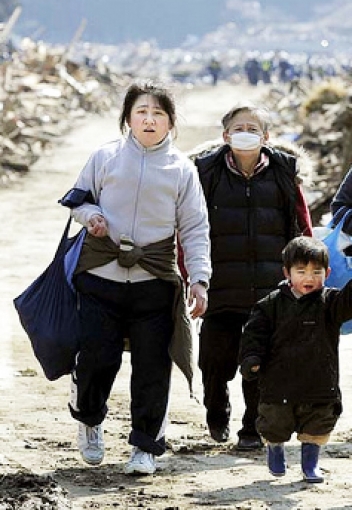 Since Friday, terrifying images of the tsunami devastating eastern Japan have rolled out on news channels all over the world.
Since Friday, terrifying images of the tsunami devastating eastern Japan have rolled out on news channels all over the world.
Reporters are desperate for information and angles but one new story is clearly emerging – how Japan’s large population of older people is one of this disaster’s biggest losers.
Japan’s disaster-ready approach without doubt saved millions of lives but many older people have found it hard to cope.
Older people found it hard to flee Japan tsunami
For example, in one heart-breaking story in The Guardian, several locals in the town of Shintona said while buildings were remarkably resilient and younger people were able to flee after a tsunami warning, older people found it harder to run or move quickly.
One woman told how she watched her older parents being washed away because they could not escape the water quickly enough.
“There are many old people here. We have evacuation drills, but people could not get to the meeting place in time. The tsunami was beyond our expectations. We must reflect on our shortcomings,” said Jiro Saito, the head of the local disaster countermeasures committee in Shintona.
The newspaper even predicted that many of the tens of thousands reported missing “are likely to be elderly people – which could prove one of the defining characteristics of this disaster”.
And for the older people that survived – their problems are far from over.
Older people vulnerable to hypothermia
Today, Patrick Fuller of the International Federation of the Red Cross, said: “There is a real concern for the elderly who have been particularly hard hit and are extremely vulnerable to hypothermia. Japan is a country with a high proportion of elderly people and the Red Cross will be doing all it can to support them through this dreadful experience.”
Sam Taylor, of Doctors Without Borders, said the longer-term prospects of older survivors was also of “great concern”.
“Many are fragile and may be living on little food and water without their lifesaving medicines. They have some medicines for the immediate future, but in the coming weeks that’s when it really could become an issue,” he told Associated Press.
Of course disasters, and particularly one of this magnitude, are devastating for people of all ages.
Response must include older people
But the world is getting older – and society, governments, donors and humanitarian agencies must wake up to it.
Around 23% of Japan’s population is over the age of 65. But its government predicts this will rise to 40% by 2055.
By this time, globally, one in five people will be over the age of 60 – outnumbering children aged between 0 and 14.
So as this particular emergency shows, only too painfully, the need to include older citizens in emergency planning and response is more critical than ever. We will learn many lessons from this.
Our thoughts are with everyone in Japan.
- HelpAge International advocates for older people to be included in humanitarian responses and has produced a series of policy recommendations for humanitarian agencies. These are designed to help relief programmes better meet older people’s needs.
- For more information about working with older people in emergencies download our paper Older people in disasters and humanitarian crises: Guidelines for best practice (526 kb) or download Humanitarian action and older persons: An essential brief for humanitarian actors (159 kb)
Picture credit: AP Photo/Kyodo News
